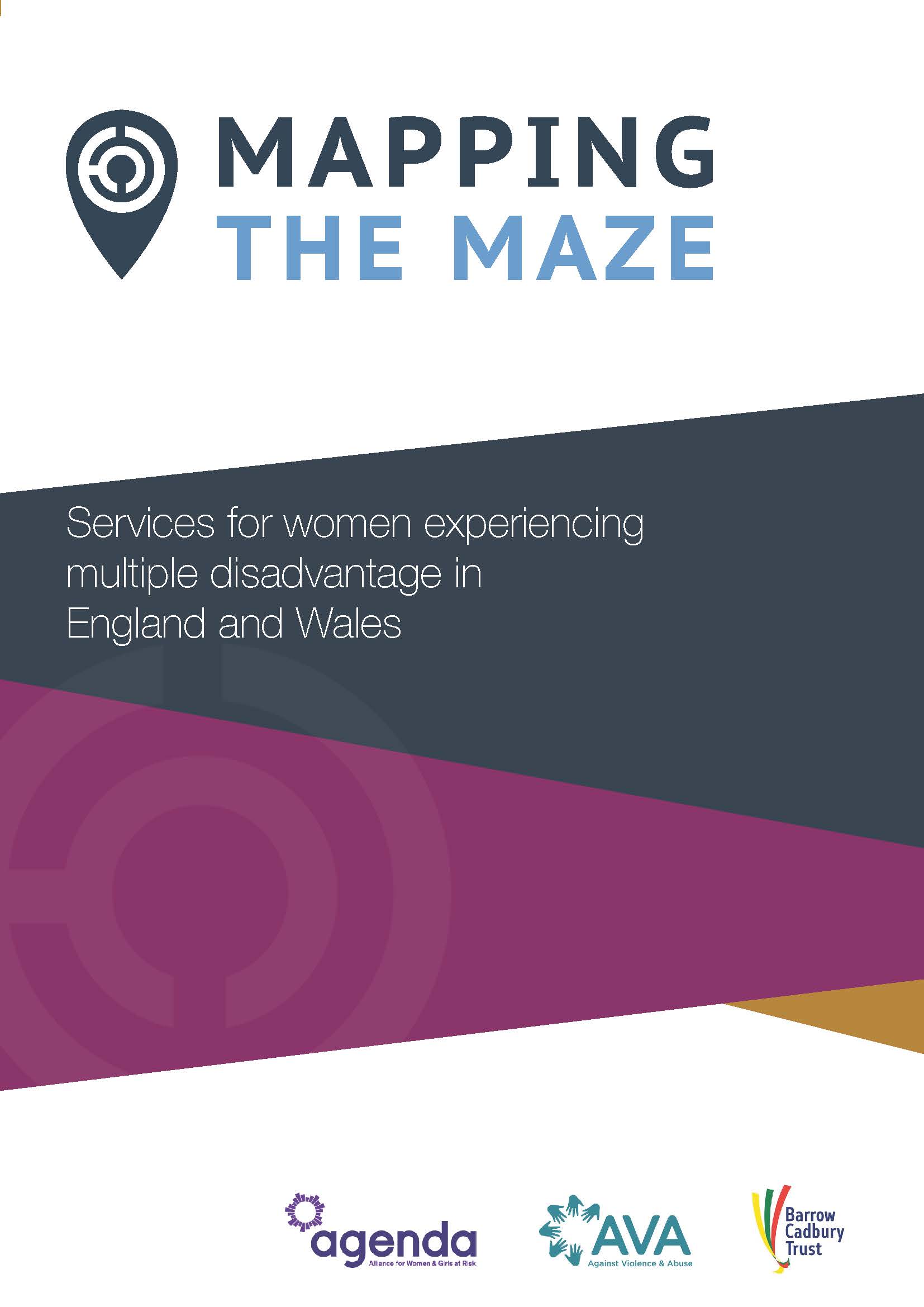Katharine Sacks-Jones, Director of Agenda, and Donna Covey, Director of AVA (Against Violence and Abuse) blog about next steps for the Mapping the Maze project. This blog was originally published on the Agenda website.
Services for the most marginalised and vulnerable women are scarce and increasingly under threat.
This is something that, working in the women’s sector, we already know.
We know this from our conversations with professionals who are working with women and are struggling to maintain services against smaller and smaller budgets.
We know this from the women themselves, whose lives are difficult enough, who jump hurdle after hurdle to access basic support or are left sitting on waiting lists for months. When help finally arrives, it fails to meet their specific needs. So they begin again, trying to find their way out of a system that often sets them up to fail.
What Mapping the Maze, the new project by AVA and Agenda, enables us to do is back-up women’s voices and their accounts of the challenges they face, with a geographical and numerical picture of the reality on the ground.
It aimed to find out what support was available to women experiencing multiple disadvantage who may be at risk of homelessness, substance misuse, poor mental health, offending and those who have more complex needs.
It shows that support specifically for women is not good enough. There are not enough services and provision is patchy across the country. A woman’s ability to access a service depends very much on where she lives – in some areas there is a range of services, in others there appears to be none at all.
In only 19 areas of England and Wales – out of 173 – can women access services that address all of the following issues: substance misuse, mental health, homelessness, offending for women and complex needs.
More mixed services may be available – but many of these will not cater for the specific needs and experiences of women.
That is because women experience multiple disadvantage in different ways to men. In particular they are more likely to have histories of extensive abuse and violence, the trauma impacting the course of their lives. The support they get needs to take this into account.
Therefore, mixed services are often not appropriate and can even be unsafe for women. For example, homeless and substance misuse services are often dominated by men – some of whom will be abusers – which at the very least can be intimidating for women and at worst, dangerous. That is why women-only support is so important.
Another challenge highlighted by Mapping the Maze is that most services only address single issues like substance misuse or mental health. If a woman does not fit the narrow parameters getting onto the service requires, she can be passed around a range of different services, none of them quite meeting her needs, leaving her unable to address the full range of challenges she faces.
That is not to say good services do not exist – they do. There are many organisations across the country doing fantastic work under challenging circumstances.
For Mapping the Maze, we spoke to a number of professionals working with women. They told us that they are being asked to provide more for less and are under pressure to hit targets that do not take account of the incremental, smaller gains that put women on a long-term path to rebuilding their lives.
We also consulted with women themselves, who told us what they wanted from service. They valued feeling safe in caring women-only environments where they are heard and understood, have support that is flexible and accessible and does not feel rushed.
Government, commissioners and service providers need to better respond to what women want and improve commissioning and services to reflect their needs.
Mapping the Maze provides evidence to back up the reports of professionals and women in the sector of the need for significant improvements and investment in support, with a focus on women-only and trauma-informed care.
We need central government to take the lead on this so that women facing multiple disadvantage – wherever they live – have a chance of making a new future for themselves and their families.
Find out more about Mapping the Maze

